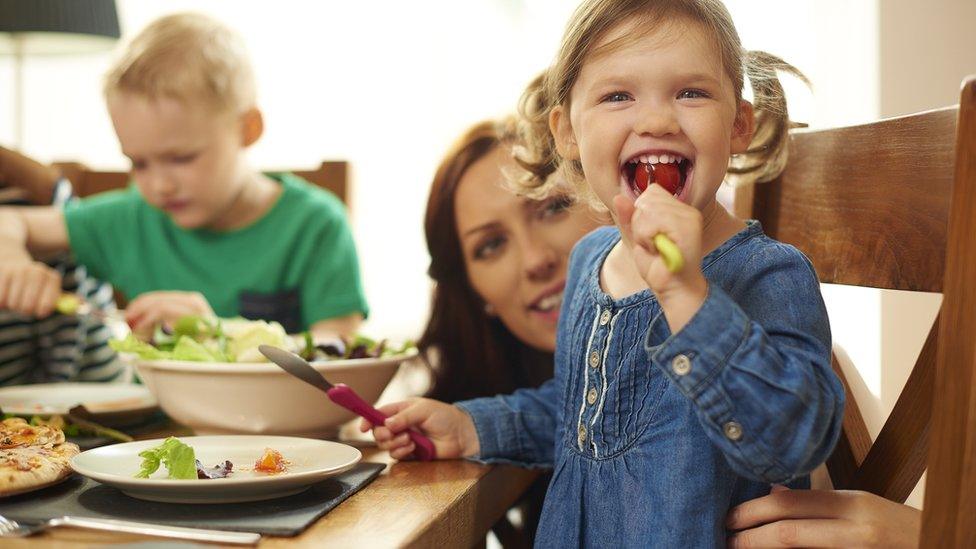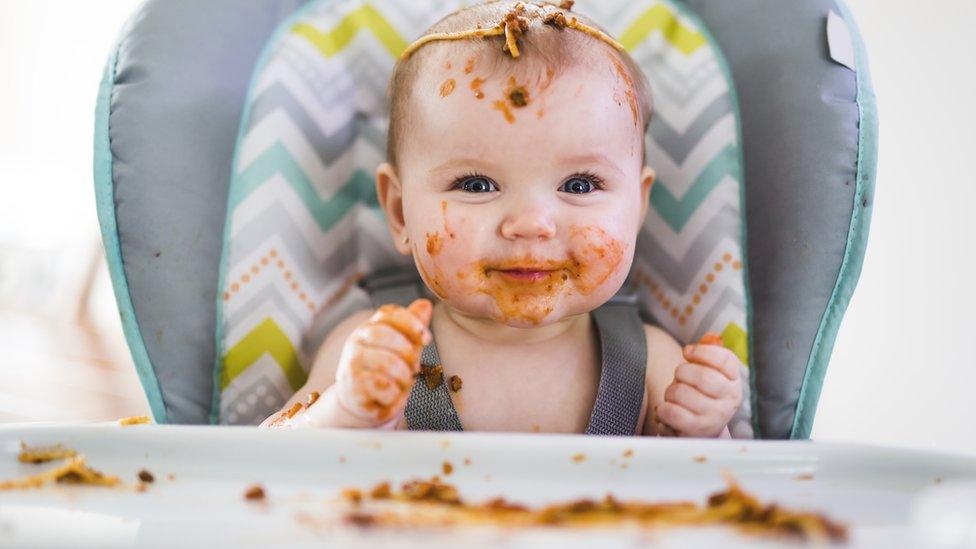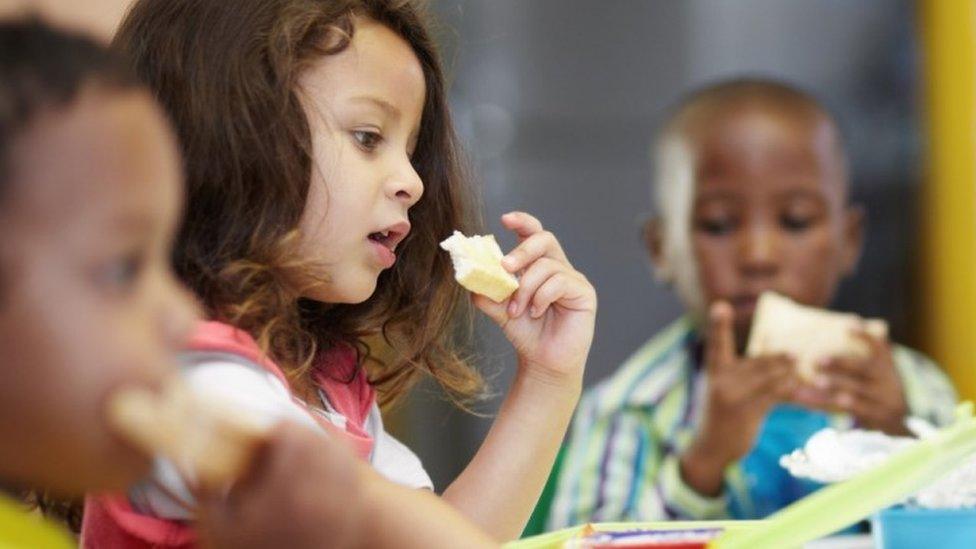Parents 'not wholly to blame for child weight gain'
- Published

Pointing the finger of blame at parents for children's weight gain may be unfair, research suggests.
It has been thought that parents' feeding patterns are a major factor in whether a child is under or overweight.
But a study suggests parents adapt their feeding styles in line with a child's natural weight and size, which is largely genetically influenced.
The study was carried out by researchers at King's College London and University College London (UCL).
The research says that, since the onset of the childhood obesity crisis at the turn of the century, the spotlight has focused on environmental factors for the problem - in the hope of finding solutions.
"Perhaps unsurprisingly, parental behaviours have received a great deal of attention," it says.
"Parents are widely considered to be the 'gatekeepers' to their children's food, and powerful shapers of their developing eating behaviour."
Parental feeding styles
The study notes that two types of parental feeding styles, in particular, play a role in how parents regulate children's eating habits:
restriction of food, which is thought to lead to weight gain because children overeat when the restriction is not there (the "forbidden fruit" effect)
pressure to eat, which is thought to make children with low appetites anxious, and compromise weight gain
But rather than dictate children's habits, the research suggests parents are "responding to their child's emerging characteristics, not simply causing them".
The researchers assessed data, from the Twins Early Development Study, of 4,500 sets of twins born in England and Wales between 1994 and 1996.
They calculated a genetic score that sets out the likelihood of these individuals to have a higher or lower body mass index (BMI).
They then matched this score against parents' feeding reports, setting out whether they used restriction or pressure.
The study found those children with a higher genetic BMI score had higher reported rates of parental restriction and those with lower BMIs had higher rates of pressuring, suggesting parents were adjusting their strategies for each child.
Even within families where non-identical twins differed in their genetic predisposition, parents were more restrictive with the twin who had a tendency to be of a higher weight and were more pressuring of the twin who tended to weigh less.
What do the results show?
Lead author, Saskia Selzam, from King's College London, says: "Our findings suggest that parents develop their feeding practices in response to their child's natural tendency towards a higher or lower weight.
"The way a parent feeds their child may also influence their child's weight to some extent, but our results challenge the prevailing view that parental behaviour is the major influence on childhood weight."

Senior author, Dr Clare Llewellyn from UCL, adds: "These results show that parents are not the 'full story' when it comes to a child's weight, and blaming parents for being too controlling about feeding may be unfair.
"But it is unclear whether these natural 'go to' strategies are helpful, harmful, or of no consequence to a child's weight in the long run."
Do parents have any impact on weight?
Ms Selzam says parents clearly have an impact, but not only in establishing learnt eating behaviours.
"It doesn't mean that feeding strategies aren't important.
"But the main point is how parents influence their children's BMI genetically.
"A lot of studies suggest it must be the parents that cause the weight gain, but we are showing that it's more complex than that."
The researchers say further study is needed to identify which feeding strategies are acceptable and how they work.
The study is published in PLOS Genetics., external
- Published11 October 2018

- Published7 August 2018

- Published24 July 2018
